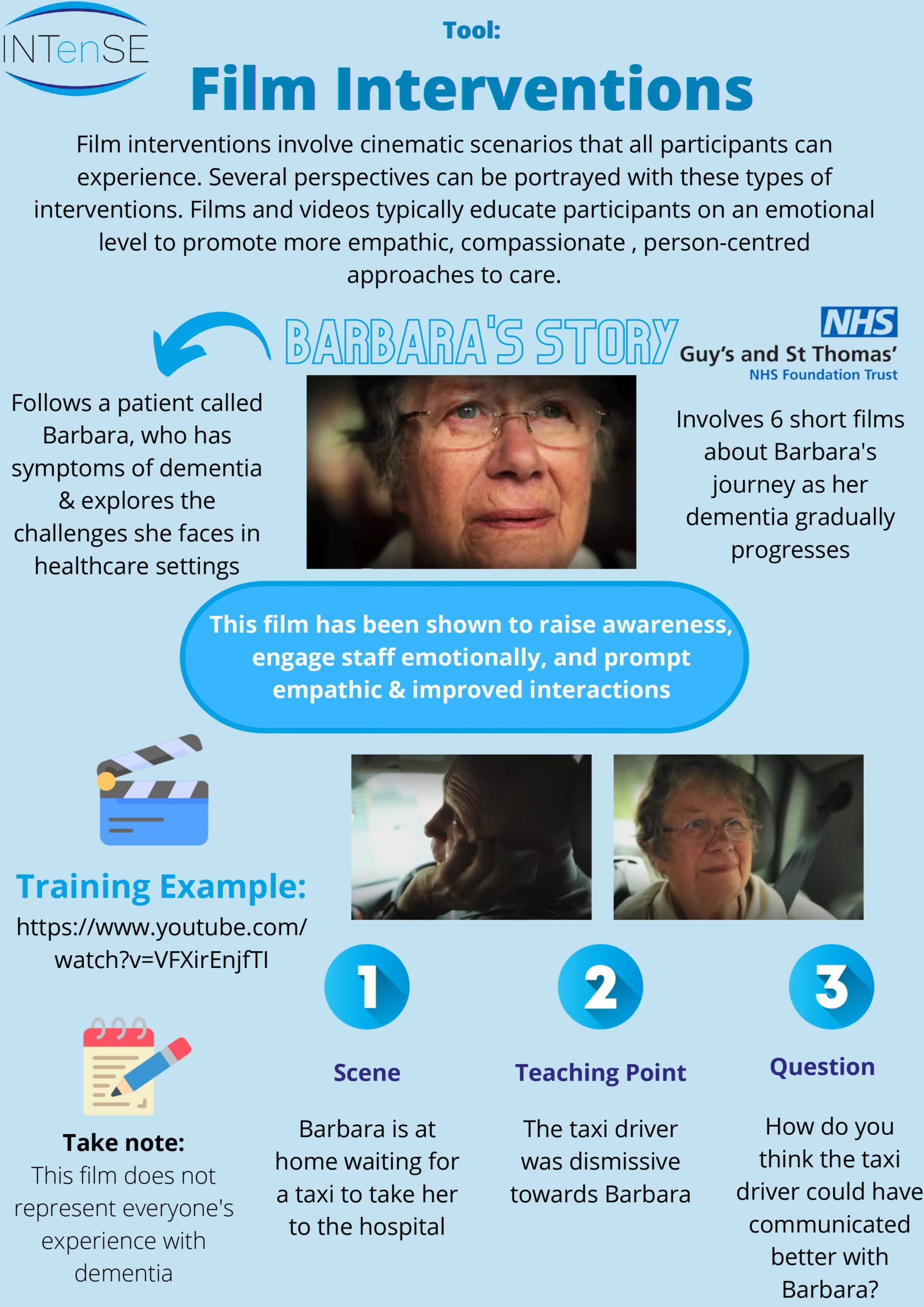Film interventions involve cinematic scenarios that all participants can experience. Several perspectives can be portrayed with these types of interventions. Films and videos typically educate participants on an emotional level to promote more empathic, compassionate, person-centred approaches to care.

Barbara’s story:
Barbara’s Story was developed by Guy’s and St Thomas’ NHS Foundation Trust.
This film follows a patient called Barbara, who has symptoms of dementia and explores the challenges she faces in healthcare settings.
It involves six short films about Barbara’s story as her dementia gradually progresses.
Scenarios (that can be downloaded):
- Barbara’s story (presentation, scenario, training)
Barbara’s story has been shown to raise awareness, engage staff emotionally, and prompt empathic and improved interactions.
Film interventions are useful to highlight the perspective of a person with dementia as a way to facilitate experiencing dementia-related symptoms either within an educational context or to raise public awareness of dementia.
Film interventions have been shown to be effective, especially in hospital settings, due to the inclusion of the direct voice and experiences of people living with dementia and their family caregivers
They also help to engage a workforce emotionally, prompting empathetic responses and support interactive and engagement methods for dementia education and training.







